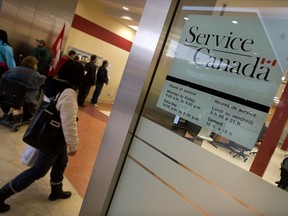The parent company of Equitable Bank (EQB), EQB Inc., has filed notice of its intention to renew its stock buyback plan. This move is part of the company’s strategy to return capital to shareholders and potentially boost share price.
Background on Share Buybacks
Companies often conduct share buyback programs as a way to return capital to shareholders and demonstrate confidence in their financial performance. By repurchasing shares, companies can reduce the number of outstanding shares, which can lead to increased earnings per share (EPS) for remaining shareholders.
Equitable Bank’s Share Buyback Plan
EQB Inc. has announced that it has received approval from the Toronto Stock Exchange (TSX) for its normal course issuer bid (NCIB). This bid will allow EQB to repurchase up to 2.3 million of its common shares, which represents approximately 8.4% of the total number of such shares in public hands.
The NCIB is a plan that allows publicly traded companies to purchase their own shares on the open market or through other means. The purpose of this plan is to allow EQB to repurchase shares at a time when the company believes they are undervalued, thereby increasing shareholder value.
Why Share Buybacks Matter
Share buybacks can have a significant impact on a company’s financial performance and share price. By reducing the number of outstanding shares, companies can increase EPS for remaining shareholders, which can lead to higher stock prices. Additionally, share buybacks can demonstrate a company’s confidence in its financial performance and ability to generate cash.
Equitable Bank’s Financial Performance
In recent years, Equitable Bank has reported strong financial results, with significant growth in both revenue and net income. The bank’s robust financial performance has been driven by its focus on residential mortgages, which have accounted for the majority of its loan portfolio.
Impact on Shareholders
The renewal of EQB’s share buyback plan is likely to be welcomed by shareholders, who may see it as a sign of confidence in the company’s financial performance. By repurchasing shares, EQB can increase EPS and potentially boost share price, which can lead to higher returns for investors.
Conclusion
The renewal of Equitable Bank’s share buyback plan is an exciting development for shareholders, who may see it as a sign of confidence in the company’s financial performance. The NCIB will allow EQB to repurchase up to 2.3 million common shares, which represents approximately 8.4% of the total number of such shares in public hands.
EQB Inc.’s Normal Course Issuer Bid (NCIB)
- Approved by: Toronto Stock Exchange
- Number of Shares Authorized for Repurchase: Up to 2.3 million common shares
- Percentage of Outstanding Shares: Approximately 8.4% of the total number of such shares in public hands
- Term of NCIB: Until January 5, 2026
Recommended Resources
- Why Share Buybacks Matter: Learn more about the impact of share buybacks on a company’s financial performance and share price.
- Equitable Bank’s Financial Performance: Read about Equitable Bank’s recent financial results and growth in revenue and net income.
What are Normal Course Issuer Bids (NCIBs)?
Normal course issuer bids (NCIBs) allow publicly traded companies to purchase their own shares on the open market or through other means. The purpose of an NCIB is to allow a company to repurchase shares at a time when they believe they are undervalued, thereby increasing shareholder value.
How Do Share Buybacks Work?
Share buybacks can be executed in several ways:
- Open Market Purchase: Companies can purchase their own shares on the open market through a stock exchange.
- Block Trade: Companies can purchase large blocks of shares directly from another party, such as a shareholder or institutional investor.
- Private Placement: Companies can issue new shares to certain investors in exchange for cash, which is then used to repurchase existing shares.
What are the Benefits and Risks of Share Buybacks?
Benefits:
- Increased EPS: By reducing the number of outstanding shares, companies can increase EPS for remaining shareholders.
- Potential Boost in Share Price: Increased EPS can lead to higher stock prices.
- Sign of Confidence: Share buybacks demonstrate a company’s confidence in its financial performance.
Risks:
- Overpayment: Companies may overpay for their own shares, which can be detrimental to shareholder value.
- Market Volatility: Share buybacks can increase market volatility if not executed carefully.
- Perception of Insider Trading: Share buybacks can raise concerns about insider trading if not disclosed properly.
How Do Share Buybacks Impact a Company’s Financial Statements?
Share buybacks are accounted for as a reduction in shareholders’ equity, which is reflected on the company’s balance sheet. The effect of share buybacks on a company’s financial statements depends on various factors, including:
- Method of Repurchase: Open market purchase, block trade, or private placement.
- Price Paid per Share: Higher prices paid can lead to increased expenses and reduced EPS.
- Timing of Repurchase: Repurchases executed during periods of market volatility may have a more significant impact on financial statements.
Conclusion
Share buybacks are an essential tool for companies looking to return capital to shareholders and demonstrate confidence in their financial performance. However, it is crucial for companies to carefully consider the benefits and risks associated with share buybacks and execute them in a manner that is fair to all stakeholders.
Recommendations
- Carefully Evaluate Share Price: Ensure that the price paid per share is reasonable and reflects the company’s true value.
- Monitor Market Conditions: Execute share buybacks during periods of market stability or when prices are low.
- Disclose Repurchase Plans: Clearly communicate repurchase plans to shareholders and investors to avoid concerns about insider trading.
By following these guidelines, companies can effectively utilize share buybacks to increase shareholder value and demonstrate confidence in their financial performance.




